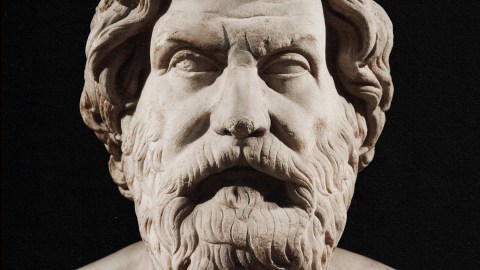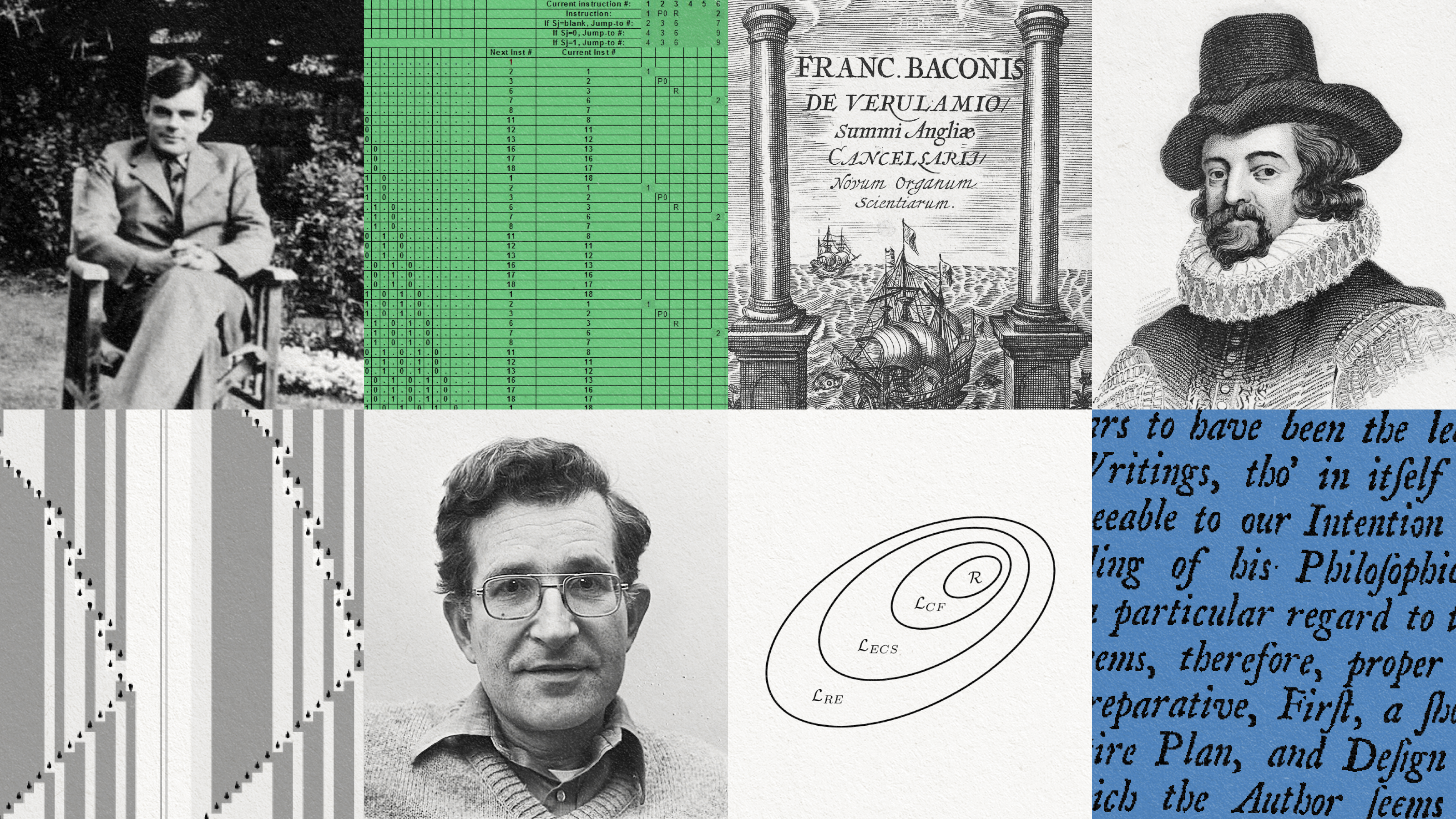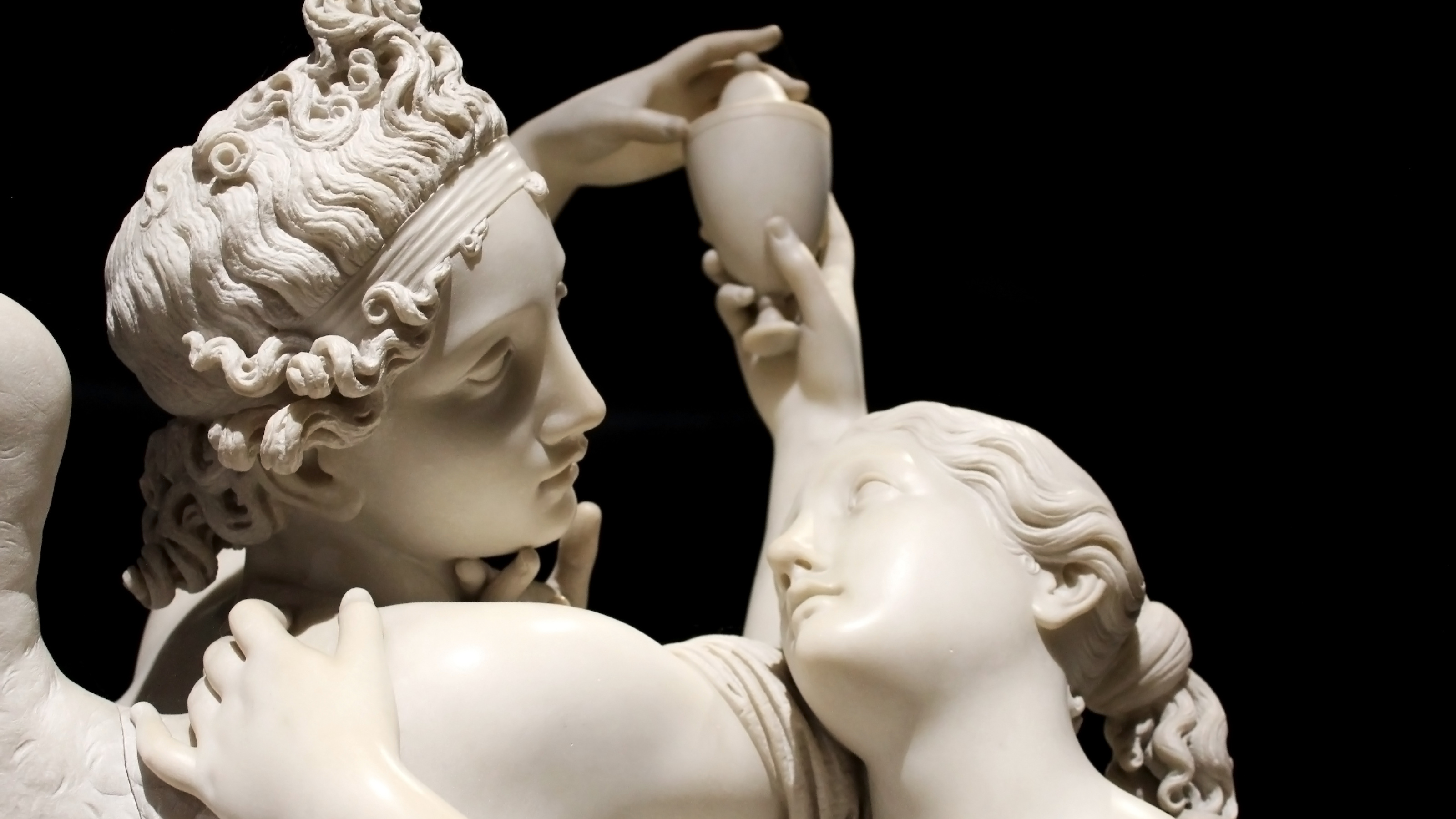5 schools of philosophy that died out

- Some schools of philosophy last ages with only minor changes.
- Other schools only endure for a century before thinkers move on to a better one.
- Here are five schools of philosophy with few to no followers left.
Some of the world’s oldest surviving texts are dedicated to philosophy. In many ways, no school of philosophy ever fully dies, as a good idea can endure over millennia. On the other hand, there are plenty of schools of thought in which nobody seems to claim membership anymore. Here, we look at five schools of thought that died out, and whether we can see any trace of their intellectual legacy today.
Mohism
Mohism is one of the many philosophies that arose in China during the “Hundred Schools of Thought” era. Named after the Chinese thinker Mo Di (also known as Mozi), the school was once large enough to compete with Confucianism. Much like Confucius, Mozi traveled around the various Chinese states spreading his ideas. He had a similar lack of success in getting a government to accept them wholesale. However, his followers were well-organized and highly regarded for their skills in statecraft, philosophy, and the building of defensive fortifications.
Many of Mohism’s ideas are recorded in a text named Mozi, which is traditionally attributed to the school’s founder. In its 30 chapters, 21 of which survive, the author argues for meritocracy in government, extending compassion to others, frugality, peace, and a utilitarian approach to the public good. The text is, infamously, much less poetic than other works of Chinese philosophy.
Mohism has the distinction of being the first known consequentialist school of philosophy. However, while Mohism argued for utilitarian calculations when making ethical choices, it did not argue for the option that maximized total happiness. Instead, Mohist thinkers argued for benefits to the community, particularly in the form of order, wealth, and population growth. Like other Chinese philosophies at the time, it is easy to see how this was geared toward rulers.
Importantly, the school argues that compassion should be impartial. While the exact implications of this are still debated, the notion of not putting yourself or those close to you above others when deciding what to do is the key to Mohist thought. This was in direct contrast to Confucian thought. Other members of the school worked on logic problems, mathematics, and theories of knowledge.
The school’s decline came with the unification of China. This led to a reduction in the need for the specialties of its scholars, particularly fortification building. Despite the end of the school, many of its ideas, particularly meritocracy, lived on in Confucianism. The philosophy of Legalism also borrowed ideas from Mozi. The Mohist idea of universal love was also used to explain the Buddhist dedication to compassion when it arrived in China.
The Cyrenaics
The Cyrenaic school is named for the city of Cyrene in Libya. The school’s founder, a one-time follower of Socrates named Aristippus the Elder, hailed from there. Passing his ideas onto his daughter, the school’s ideas would be codified by his grandson Aristippus the Younger. In many ways, the school is a bit of a caricature of Ancient Greek thought and its philosophers.
The Cyrenaics were especially skeptical. They argued that the only knowledge we have is that of our own experiences. But while we can be sure of those experiences, we cannot know anything about the things that cause those experiences, they argued. Importantly, this includes anything about the outside world. This also means we cannot know if others have similar experiences to us. This lack of information ties directly into their view of the good life.
Aristippus, perhaps remembering Socrates’ ability to party, argued that pleasure — not happiness — was the highest good in life. After all, according to their skepticism, the only thing we really have are our experiences. Why not make them pleasant ones?
Recalling how Socrates argued that pleasure was a part of living a good life, the Cyrenaics took that idea and ran with it. They argued that physical pleasure was more important than mental pleasure and that achieving it now was much better than getting it later. While they admitted some concern for others, even this tied back to benefit for the self: Friendship was viewed as a self-interested enterprise, meaning you only have friends for what they can do for you. Later Cyrenaic thinkers would go so far as to argue that using virtue to reach a good life, the goal of many Greek schools, was impossible.
The school produced a number of offshoots before eventually being eclipsed by the more moderate hedonism proffered by the school of Epicureanism.
Cynicism
A philosophy known for its extremism, it is easy to understand why nobody claims to be a Cynic philosopher anymore. Founded by Antisthenes, another student of Socrates, the school’s most famous teacher was Diogenes of Sinope. The Cynics were the greatest example of the Hellenistic idea of a philosopher who lived their ideals. Diogenes famously lived part of his life in a barrel, had few possessions, and aimed to live as closely to nature as possible.
Their extreme asceticism is tied to the Cynic ethical system. As opposed to the Cyrenaic rejection of virtue, the Cynics argued for living for virtue alone. This was to be achieved by living as closely in tune with nature as possible. Living a simple life — dedicated to virtue, and devoid of that which was not needed — is the goal of any true Cynic. Culture and convention often get in the way of this kind of living. Therefore, Diogenes made a point of mocking convention whenever he could.
The Cynics also developed the idea of cosmopolitanism, the notion that a person’s loyalty is to humanity rather than to wherever they live. Given how vital and restricted citizenship was in Ancient Greece, this was a bold stance. By rejecting duties to the state, the Cynics further freed themselves to live according to virtue alone and to spend time understanding their relationship to the cosmos.
The Stoics were influenced by the Cynics. Several major ideas in Stoicism can be viewed as toned-down versions of what they argued. The Stoic philosophers admitted this influence. Epictetus went so far as to say that living as the Cynics did was admirable, but too difficult for most people. Several ancient Stoic works include the Cynic philosophers on lists of Stoic Sages to be admired and emulated.
Transcendentalism
The first American school of philosophy and literature, transcendentalism was a movement based in New England. It included a number of writers and thinkers. The two most important were Ralph Waldo Emerson and Henry David Thoreau. Influenced by such diverse elements as Kantian philosophy, the British Romantic movement, and New England Unitarianism, the school focused on subjects such as beauty, the ideal, and the individual’s place in an industrializing world.
Its takes on individualism are still relatively radical. When arrested for refusing to pay the poll tax, Thoreau wrote “Resistance to Civil Government,” also known as “Civil Disobedience.” It explores the right and duty of individuals to refuse to cooperate with a government that acts against their conscience. In his case, he objected to the idea of his money going to finance the invasion of Mexico. Thoreau would also write Walden, where he praises living alone near the titular lake and questions many assumptions about the good life. Emerson had related views, writing on the need for self-reliance and, despite his involvement in some reformist groups, arguing that the individual was still the basis of change.
This individualism extended to the spiritual and epistemological realms as well. Emerson argued that individual intuition and revelation were the answer to both religious skepticism and modern calls for a more empirical approach to religion, as exemplified in the Unitarian movement. This manifested in many forms for the thinkers in this school.
Emerson, who was both the leading thinker of the school and a consistent objector to the idea he was in it, thought the movement was running out of steam by 1850. The journal The Dial, which was edited by Emerson and came to be the primary publisher for many Transcendentalist writers, shut down in 1844. Later revivals featured different subject matter. While the lack of a grand philosophical theory probably limited the long-term survival of the school, its ideas continue to inspire thinkers from the existentialists- especially Martin Buber, to those looking for modern takes on Hinduism.
Logical positivism
The last school on this list is the most recent. Perhaps better described as a movement within analytic philosophy, logical positivism managed to attract some of the world’s most notable modern philosophers. Spearheaded by “The Vienna Circle,” it would attract names like Bertrand Russell, A.J. Ayer, and Ludwig Wittgenstein.
Logical positivism’s project can be best described as an attempt to bring the idea of verificationism — the idea that a statement is only true if it is a tautology or if it is empirically verifiable — to philosophy. This idea, often associated with Rudolf Carnap, leaves metaphysics, ethics, and aesthetics meaningless. It also raises serious questions about what counts as science.
Wittgenstein would attempt to solve nearly all philosophical problems by solving semantic problems. His book that claimed to do that, Tractatus, was celebrated in the Vienna Circle, even if they didn’t fully agree with it. Bertrand Russell and Alfred North Whitehead attempted to reduce all mathematics to logic in Principia Mathematica — part of the larger goal of breaking down the world into quantified units of logical meaning.
Unfortunately, logical positivism ended up a dead end. After World War II, many of its key goals had yet to be reached, and a new generation of philosophers was taking aim at the work they had done. Former supporters and fellow travelers like Wittgenstein began to change their minds. Wittgenstein’s second and final philosophy book is a 180-degree turn from Tractatus. Bertrand Russell questioned whether Principia Mathematica would endure as a useful work and lamented that it was still too steeped in Indo-European language. Philosopher A.J. Ayer, an early English-speaking supporter of logical positivism, later said that “nearly all of it was false.” Nevertheless, the school was very important for a brief time and influenced a great deal of analytic philosophy.
If nothing else, logical positivism’s story proves that philosophers can admit when they are wrong.





